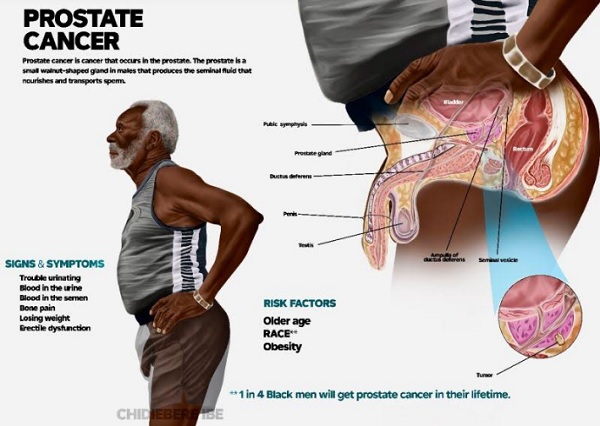ANALYSIS Wenlong Carl Chen Prostate cancer disproportionately affects men of African descent. Studies from the U.S.
and African countries report a higher occurrence of prostate cancer in men of African ancestry when compared with men of other ancestries. Men of African and African Caribbean ancestry were also found to be at higher risk of developing a more aggressive form of prostate cancer and of developing it at a younger age when compared with men of European ancestry. Prostate cancer also accounts for nearly one-quarter of all cancer cases diagnosed in Africa.
Our study aimed at uncovering aspects of genetic architecture of prostate cancer that were specific to men of African descent. In other words, we wanted to understand what it is about African men’s genetic makeup that puts them at higher risk for prostate cancer. Evidence emerging in the literature suggests that genetic risk factors significantly contribute to the development of prostate cancer.
Genetic risks can be put into two groups: Hereditary risk factors or germline mutations: There are rare genetic mutations in genes, such as BRCA1 and BRCA2 that have been linked to increased risks for developing cancers. Mutations in BRCA2 particularly are linked to higher risks of developing more aggressive prostate cancer. Single nucleotide polymorphisms or variants: These are common genetic variants that are linked to increased disease risk.
Each variant by itself confers a very small increase in risk. But several varia.


















